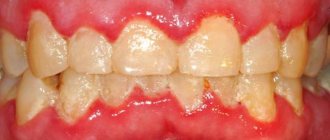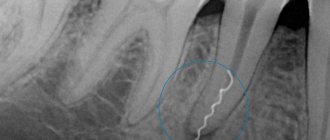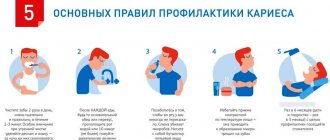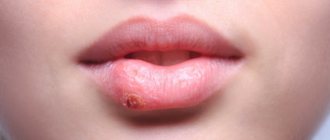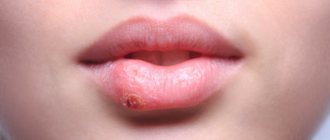In cases where bad breath is bothersome, the first thing people pay attention to is the oral cavity. They also remember what products were consumed and what could cause this situation. It’s good when everything gets by with the fact that the trouble turns out to have happened because of the onion or garlic that was eaten. But it happens that the smell is a symptom of stomach diseases. In such cases, you should pay attention to your health and eliminate the cause.
What does an unpleasant odor mean?
Halitosis is a phenomenon of bad breath.
This phenomenon of bad breath is called halitosis. In fact, there are quite a few reasons that can cause such trouble.
But, if we take into account that this problem is related to the stomach, it is worthwhile to find the cause and possible disease as quickly as possible.
A very common problem that contributes to bad breath is problems with the digestive system. Everyone knows about such a disease as gastritis, many are even familiar with it. This is the first, most common disease, which gives such a symptom as halitosis.
Also, a disease such as an ulcer gives the same symptoms. Accompanied by bad breath, there may be dysbacteriosis, flatulence, constipation, diarrhea, gastroenterocolitis, duodenitis. There are stomach diseases that are caused by bacteria, viruses, allergies, all of which can cause halitosis.
This symptom can occur due to both food and drug poisoning.
How to remove food if it's stuck between teeth
If food gets stuck between your teeth and your breath smells, you need to use hygiene products to care for your teeth.
The most common cleaning methods:
- The toothpick should be positioned at an angle of 30-40 degrees relative to the gum, pressed against the gingival papilla and the plane of the tooth. Remains of food are removed by moving the toothpick upward.
- Dental floss. The floss is pinched with your fingers and inserted into the interdental space. Cleaning with dental floss is carried out in a reciprocating motion.
It is important to understand here that both of these methods are quite traumatic, and any careless movement can damage the gums. Then how to remove food stuck between teeth? To do this, you can use an irrigator.
Irrigators are absolutely safe to use: pieces of stuck food are removed with a stream of water. This allows you to efficiently clean even hard-to-reach places without damaging the gums and interdental spaces. In addition, irrigators are ideal for the care of denture structures.
Gastritis
Gastritis can cause bad breath.
But the reason may be a person's diet. Namely, this applies to poor nutrition, non-compliance with the regime, quick dry snacks, and alcohol.
All this contributes to inflammation of the mucous membrane, thereby disrupting the process of digesting food, as a result of which a person gets halitosis.
But this, as already mentioned, is only a symptom, the problem lies in gastritis, which is simply inevitable with this method of eating.
Causes of food getting stuck between teeth
The main reason for food getting between the teeth is a violation of the density of their contact with each other (in dentistry this concept is referred to as a “contact point”), which can be caused by:
- low-quality fillings (prostheses). An incorrectly placed filling may not exactly follow the topography of the tooth and may have an overhanging edge. A sign of poor quality fillings can be either stuck food or breaks in the dental floss during its use;
- natural structure of the dentition. This may be curvature of the teeth, diastema (gaps between the lower or upper central teeth), trema (gaps between the lateral teeth);
- deformation of the dentition due to injury, tooth extraction, and various diseases of the oral cavity.
- Unprofessional prosthetics. There may be a gap between the crown and the tooth; the denture design does not correspond to the anatomical shape.
- There is no papilla between the tooth and gum. It fills the interdental space, and in the absence of such a papilla, the problem of food getting stuck appears.
- Crevices. May appear as a result of injuries or diastema. As a result, pieces of hard food constantly get stuck in the cracks, which have to be removed with thread or a toothpick.
- Loss of teeth. As a result, the integrity of the dentition is compromised, which provokes the occurrence of the problem in question;
- Caries. As a result of carious lesions, the enamel is destroyed and a cavity is formed. Residues of food accumulate here, which can only be removed purposefully: ordinary rinsing and salivation will not cope with this task.
What will help solve the problem?
If you have gastritis, you need to seek help from a specialist.
If this problem is not related to the regime and the digestive process, but is a disease, treatment and prevention of diseases is needed under the supervision of a doctor.
With such diseases, it is very important to consult a doctor for help, since prolonging the disease can lead to more serious consequences. In such situations, diseases require long-term treatment.
It is also worth remembering that not all medications can be taken without consulting a doctor and a full examination. Most often, for gastritis, medications are prescribed that reduce acidity and help in the regeneration of the mucous membrane.
There may be cases when antibiotics and painkillers are needed, it all depends on the disease itself and the stage.
Consequences of regularly getting food stuck between teeth
Some people don’t even think about how to get stuck food out of their teeth. They are guided by the principle, it doesn’t hurt and it’s okay, making a big mistake. Meanwhile, such neglect can lead to dire consequences. For example:
- Gum diseases - food debris is an irritant that damages the mucous membranes, which provokes the development of dental diseases: gingivitis, periodontitis, etc.;
- Unpleasant odor - the food remaining between the teeth begins to decompose, which, in addition to the amber, creates a favorable environment for the life of pathogenic bacteria;
- Root injury – irritation of the gums can cause exposure of the neck of the tooth, which increases sensitivity and causes pain;
- Caries - stuck pieces of food is one of the main causes of carious lesions of the enamel; this disease can only be eliminated through dental intervention;
- Tissue destruction – if you do not clean the interdental space, the teeth begin to gradually deteriorate, which can lead to complete loss.
Diet
The diet will help improve digestion.
There are general rules that can significantly improve digestion and help with stomach pathologies, thereby getting rid of unpleasant symptoms. The first thing you should do is adjust your diet:
- Be sure to include healthy foods;
- Eliminate fast food;
- Refrain from taking processed foods;
- You should not eat spicy food;
- Carbonated drinks are prohibited.
The diet itself should consist of frequent meals, but in small portions. When creating a menu, you should pay attention to the following products:
- Be careful when consuming sugar and carbohydrates, if possible completely eliminate them from the diet. The same applies to confectionery products.
- As for fatty foods, they should be consumed in small quantities.
- Also reduce your consumption of fried and salty foods.
- It is better to limit yourself to drinking coffee and tea during the treatment period. But you should avoid products such as milk and cottage cheese.
- If possible, consume meat in limited quantities.
- Everyone knows about the benefits of fruits, but few people know that they cause fermentation and bloating, so you should exclude plums, grapes, and sour apples.
- But fermented milk products will be very useful. They have a beneficial effect on digestive processes and restore the balance of microflora. It is worth paying attention to those products that contain acidophilus and bifidobacteria.
- Vegetables and fruits contribute well to normal digestion, with the exception of those that cause fermentation. In addition, they saturate the body with vitamins.
- Do not forget about drinking water, which is very important and necessary for the body.
How to prevent bad breath?
To avoid an unpleasant problem, prevention is necessary.
- First of all, high-quality oral hygiene. It includes not only brushing your teeth with a brush and toothpaste twice a day, but also using antibacterial rinses, dental floss, and sometimes an irrigator. To clean your tongue from plaque, it is better to use a plastic scraper rather than a brush.
- Once every 5-7 months, you must visit the dentist to remove dental plaque and conduct an examination. Almost any disease of the teeth and gums can be detected at the initial stage, without waiting for inflammation, pain and unpleasant odor.
- Experts recommend drinking 1.5-2 liters of clean water per day. This will help avoid dehydration and dry mouth.
- A healthy diet will keep your breath fresh. In the morning, it is better to give preference to oatmeal, which promotes salivation. Do not overdo it with protein and fatty foods, dairy products, coffee and spices, but be sure to include apples, oranges and celery in the menu.
- Regularly undergo preventive examinations with doctors and get tested.
Traditional methods
Cabbage juice will help cure gastritis.
You can use traditional methods, which are quite effective. But when using them, it is important to follow the dosage recommendations.
An important factor is also that any medicinal plant has its contraindications.
For these procedures to be beneficial, you need to study information about the medicinal plant. If the disease is gastritis, you can use the following methods:
Gastroesophageal reflux
Gastroesophageal reflux is a condition in which, due to disturbances in the functioning of the gastrointestinal tract, gastric juice refluxes into the esophagus. The hydrochloric acid contained in this secretion emits a specific odor that is felt when breathing.
A particularly clearly unpleasant “smell” from the patient’s mouth is felt immediately after he wakes up. After all, during sleep a person is in a horizontal position, which means that digestive juice can flow into the esophagus absolutely unhindered.
Other characteristic symptoms of reflux are specific stomach pain, nausea and frequent belching. It is also worth noting that the described disease rarely occurs on its own. It usually accompanies gastritis and develops against the background of its exacerbations.
It is important to know
It is worth remembering that any symptoms go away only after complete relief from the disease. If you do not start treating the disease itself, complications may appear that will cause more serious problems. All diseases associated with the stomach require examination and individual treatment. Only a doctor can prescribe the correct treatment.
All the methods described above are quite effective, but it is worth considering that they may not be suitable for everyone. In addition, there are different stages of the disease that require a special approach. A proper and nutritious diet can bring many benefits.
If you use advice on what to refuse and what to pay attention to, the treatment will be much more effective. By combining useful information, you can find the fastest and most enjoyable treatment method. Do not forget about walks in the fresh air, which have a very beneficial effect on the digestive processes.
How can you tell if your breath smells?
Determining the freshness of your own breath is not at all easy. We adapt to the aromas that we smell all the time and stop noticing them. In addition, the oral cavity and nasopharynx are a single system, and this makes testing difficult. But there are several simple and visual ways to understand if there is a bad smell.
- Lick your wrist with the tip of your tongue and wait 15-20 seconds until the saliva dries. The scent left on the skin will give you some idea of the freshness of your breath. However, the tip of the tongue collects the smallest amount of bacteria, so the results will not be completely true.
- The main breeding ground for microflora that causes an unpleasant odor is located at the root of the tongue. Run your finger or a cotton swab in the area and smell: if the “sample” smells strong, there is a high chance that your breath may be spoiled too.
- Take a plastic cup, place it on your lips and release the air through your mouth. The smell inside the container will help determine if you are suffering from halitosis.
- Ask a loved one if he notices a specific “smell” when he communicates with you. Sometimes this is the most reliable way to find out the answer to a sensitive question.
Diaphragmatic hernia
The diaphragm, separating the chest and abdominal cavities, is equipped with a special opening. The esophagus passes through it. However, with a hernia of the diaphragm, the described hole becomes too wide. Because of this, the esophagus, normally partially located in the abdominal cavity, moves higher.
What are the consequences of such a violation? Due to the uncharacteristic bends of the esophagus, as well as its specific location, the likelihood of gastric juice entering this organ increases significantly. Well, we have already mentioned what this leads to when talking about gastroesophageal reflux and chalasia cardia.
Which doctor should I contact?
In order to completely eliminate the problem, it is necessary to establish from what provoking factor it appears. To do this, the patient must visit a dentist and a gastroenterologist. Diagnostics in dentistry is carried out with a special device - a halimeter. Pathogenic bacteria are identified using a microbiological study of the composition of plaque on teeth. The dentist may prescribe blood tests and x-rays. Treatment of chewing organs and gum tissue involves complete sanitation of the oral cavity. Treatment of carious lesions and the fight against inflammatory processes are mandatory. A comprehensive approach to solving the problem may be required. Today, technologies are often used that provide oxygenation to the oral cavity. After all, oxygen inhibits anaerobic flora.
If after the procedures your breath smells like vinegar, you need to check your gastrointestinal tract. The doctor may prescribe endoscopy, ultrasound of the abdominal organs, and computed tomography. The treatment program may include drug therapy, physiotherapeutic procedures, a balanced diet, and immune support. Acidity neutralizers, histamine receptor blockers, antispasmodics and prokinetics, enzymes, enterosorbents, and probiotics are prescribed. It is important that the patient does not delay going to the doctor. Timely treatment prevents complications from occurring.
Chalazia cardia
Gastroesophageal reflux is the reflux of gastric juice into the esophagus.
The cardia is the gastric muscular valve that connects this organ to the esophagus.
Its dysfunction (chalasia) leads to the fact that digestive juices enter cavities not intended for them. Usually this is the esophagus.
As a result, a condition with symptoms reminiscent of gastroesophageal reflux occurs.
Unlike the mentioned disease, chalazia cardia develops as an independent disease. This disorder has nothing to do with gastritis.



